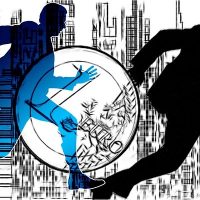As a part of Kyocera philosophy, Inamori mentioned that experience is much more important than knowledge.
“Knowing how to do and experiencing how to do are completely different.
For example, predicting the shrinkage rate when firing ceramics, the actual results usually differ each time, even if you intend to perform firing under the same conditions based on the knowledge gained from the literature. The knowledge and theory obtained from the book is different from the reality that actually happens in our practice. You can get the principles applicable to the practice only from your experience. Regardless of which department you are, this is exactly the same. “

However, people are reluctant to learn through experience. I think this is because people are afraid of the following.
2 Failure (of challenge)
3 Being blamed (avoiding responsibilities)
I would like to analyze the background of such a mentality and propose the solutions.
1 Losing (established position, etc.)
Mr. Inamori said as follows.
“Everyone seems to be knowledge driven, so just knowing the theory makes us think that we can do everything. But that’s just an illusion. It is necessary for such a person to back up the theory through practice. If you demonstrate the sales theory, please just conduct that theory. If you acquire that know-how through your own experience, that is a practical, convincing and powerful theory to be conducted.”
→ Perhaps because of postwar Japanese education, people with a high degree of education are considered to be seniors in our business environment. This kind of mentality has been spreading in our society. Then, highly educated people are reluctant to go into the practical field and humbly experience basic tasks and processes. Perhaps they would think they will lose the position that they have built.

Nevertheless, you can think “Without such experience, I would not be able to understand the system, and I would put my company at risk of survival.” Such a mindset encourages leaders to experience fundamental business processes. Leaders can find significance in small hands-on experience. I think we can cherish such an experience.
2 Failure (of challenge)
If you fail, your position will be jeopardized. I want to be as comfortable as I am now. Anyone who has been successful in society may have this kind of feeling. This is an obsession. When you stick to what you have, you can’t see the truth. I am so afraid of failure that I value knowledge that I do not know. To prevent this from happening, I think it is important to be aware that even if you try new things and fail, you will be admired and the actions you take for your peers will be valued. Kyocera has developed such a corporate culture. This has also been a reason to drive their growth.

3 Being blamed (avoiding responsibilities)
Mr. Inamori said this.
“Some business leaders hire specialists if they try to expand into new fields that are not their specialty. However, you should distinguish their advice; they come from just their knowledge or their experiences. A person who has learned ceramic theory but never made ceramics cannot make any products where the ceramics are applied. You shouldn’t equate what you learn with what you can do. Let me tell you another example, in marketing, those who have studied marketing at university profusely state the current distribution theory, and the business leader believes what this guy said. Leaders without such marketing theory may get impressed with those marketing guys. But if you tell him to actually sell the product, I am sure those marketing guys would never be successful. This is simply because they do not have either any experience or know simple communication manners. “

Business leaders, maybe unconsciously, want to stay away from the responsibilities, and put them on the other specialists. At the same time, they want to fill in their complex of inferiority by involving professionals who can eloquently cover top leaders’ complex with knowledge.
To prevent this, it is important for business owners to always face their minds and unconscious feelings. It is important to realize that you have such a strong sense of inferiority. Being aware can prevent the feeling of inferiority from permeating the subconscious level.

Mr. Inamori says this.
“If you want to hear the opinion of others, choose someone who has a proven track record. If you want to ask a professional’s opinion, listen to the opinion of someone who has actually done it, not just someone who talks about superficial things.”
I have been learning business administration. I’m still in the middle of learning, and honestly, I’m still afraid to have all the responsibility for the lives of others-staffs-. In order to face these weaknesses, I think it is important for the top leaders to get rid of their pride and learn honestly through experience. I would like to humbly gain experience and learn from small things one by one.

Further queries or doubts, please email to ytomizuka@abrilsjp.com
News Letter subscription is here












